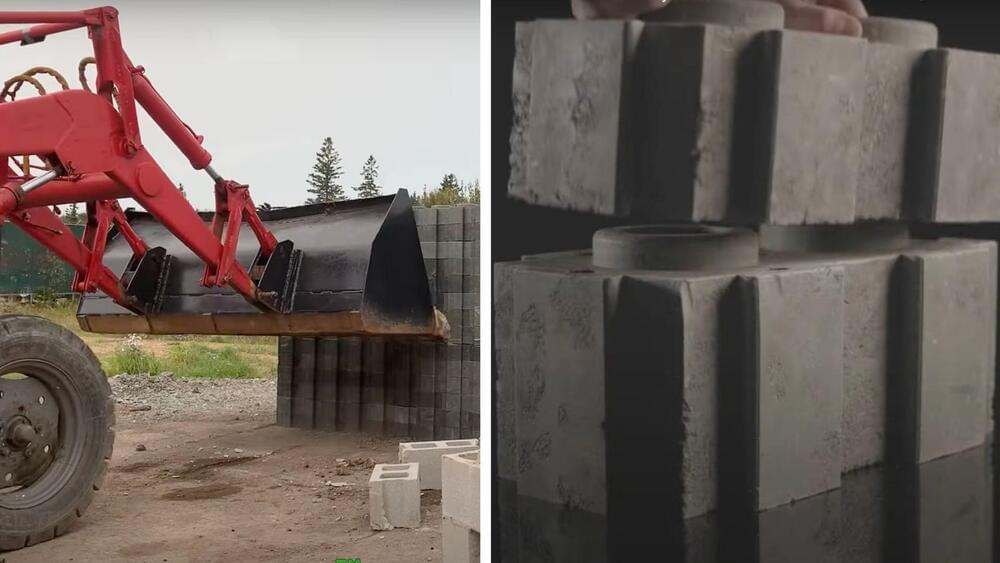Jun 6, 2024
Tesla builds 50 million 4680 battery cells at Giga Texas
Posted by Shailesh Prasad in category: sustainability
Tesla announced major progress in 4,680 battery cell production with a new milestone at Giga Texas.
Tesla announced major progress in 4,680 battery cell production with a new milestone at Giga Texas.
Prominent investor Ron Baron has come out in support of Tesla CEO Elon Musk’s $56 billion pay package, which is up for a shareholder vote next week, according to an open letter from the Baron Capital founder on Tuesday.

China has just connected what it believes to be the world’s biggest solar power plant to the grid in northwestern Xinjiang. The plant covers an area of 200,000 acres and is reported to have an output of 6.09 billion kWh annually.
The new plant is in the deserts near the region’s capital Ürümqi. The site came online this Monday (June 3) and is being run by the Chinese state-owned Power Construction Corporation, according to Reuters.

The brick looks like concrete but avoids typical issues like water absorption and cracking.
Newly-introduced Lego-like bricks may make the construction process easier than ever.
Continue reading “Bulldozer-resistant tough Lego bricks made from 90% plastic trash” »

Experts from Germany believe their most recent breakthrough advances the quality of solid-state, sodium-ion batteries.
It’s technology that many researchers are pursuing as a replacement for common lithium-ion power packs, with the hope of finding a better-performing and cheaper alternative.
Coral reefs, nurturing hubs of marine biodiversity, are grappling with mounting threats from environmental shifts. Traditional monitoring techniques, often laborious and invasive, are proving inadequate in the face of rapid ecological changes.
Spanish scientists are working on an internal combustion engine that does not pollute the environment. Will the new technology change the future of emission-free transport, which until now has been associated with electrification? Two prototypes will soon be presented.
Until recently, it seemed that combustion vehicles, alongside EVs and vehicles that use biofuels, were not participating in the ongoing ‘race’ for sustainable transport. But this has changed, thanks to Spanish scientists from the Technical University of Valencia (Universitat Politècnica de València, UPV) who are working on an emission-free internal combustion engine.
The Spanish scientists have designed a ‘revolutionary’ internal combustion unit that does not generate gases that are harmful to health or carbon dioxide (CO2), and which also stands out for its high efficiency and complies with the emission regulations planned for 2040. According to the Valencian Innovation Agency, which co-financed the project, the first two prototype engines will come to light in the coming months.
Swiss researchers have developed a solar energy method using synthetic quartz to achieve temperatures above 1,000°C for industrial processes, potentially replacing fossil fuels in the production of materials like steel and cement.
Instead of burning fossil fuels to reach the temperatures needed to smelt steel and cook cement, scientists in Switzerland want to use heat from the sun. The proof-of-concept study uses synthetic quartz to trap solar energy at temperatures over 1,000°C (1,832°F), demonstrating the method’s potential role in providing clean energy for carbon-intensive industries. A paper on the research was published on May 15 in the journal Device.
The Need for Decarbonization.
Cities across the world should invest holistically to meet today’s changing mobility needs and create urban landscapes more accessible and sustainable.
As humanity travels back to the Moon in the next few years and potentially Mars in the next decade, how much of a role should planetary protection play regarding the safeguarding of these worlds? This is what a recent study published in Space Policy hopes to address as a team of international researchers discuss prioritizing planetary protection and sustainability could not only aid in space exploration but also sustainability on Earth, as well.
For the study, the researchers propose the expansion of current planetary protection policies to help safeguard against security, orbital debris, and crowding, as current policies only focus on preventing biological contamination from human activities. While biological contamination might not be a concern on the Moon given it lacks the necessary conditions to support life, the planet Mars is hypothesized to have once possessed microbial life deep in its ancient past and could potentially be hosting life beneath its surface.
“Sustainability must become a core principle of human space exploration,” said Dr. Dimitra Atri, who is an investigator in the Center for Astrophysics and Space Science at NYU Abu Dhabi and lead author of the study. “Just as we view climate change as the great challenge facing our terrestrial human society, the space community should begin to address space sustainability with the same urgency.”
